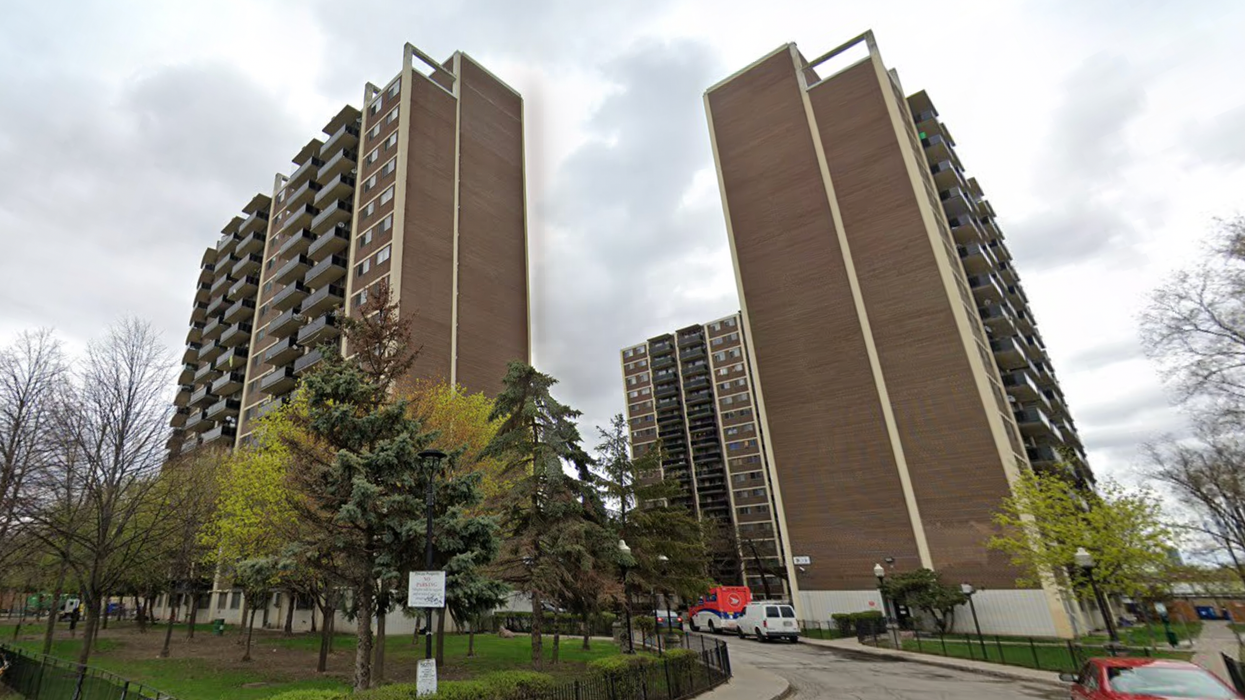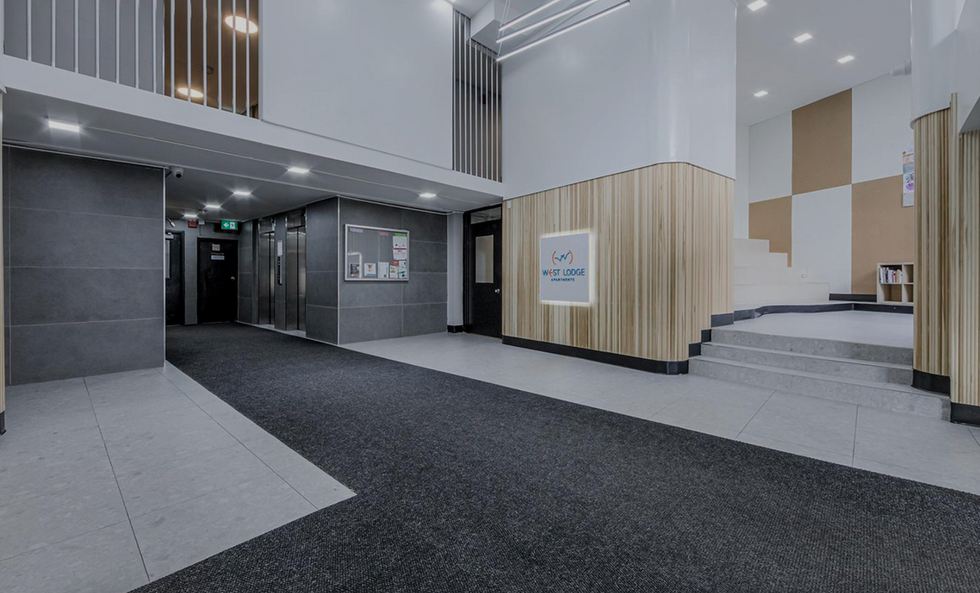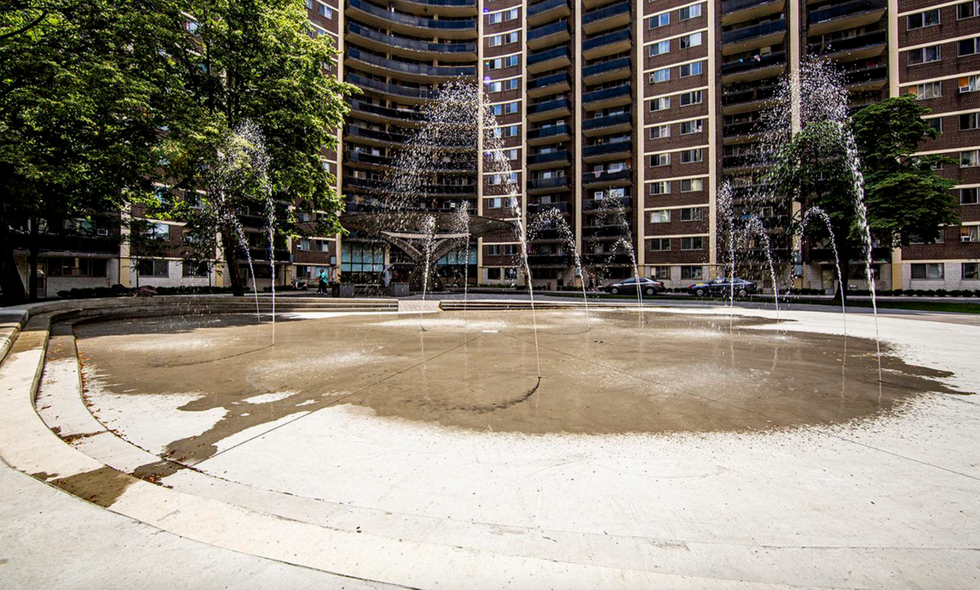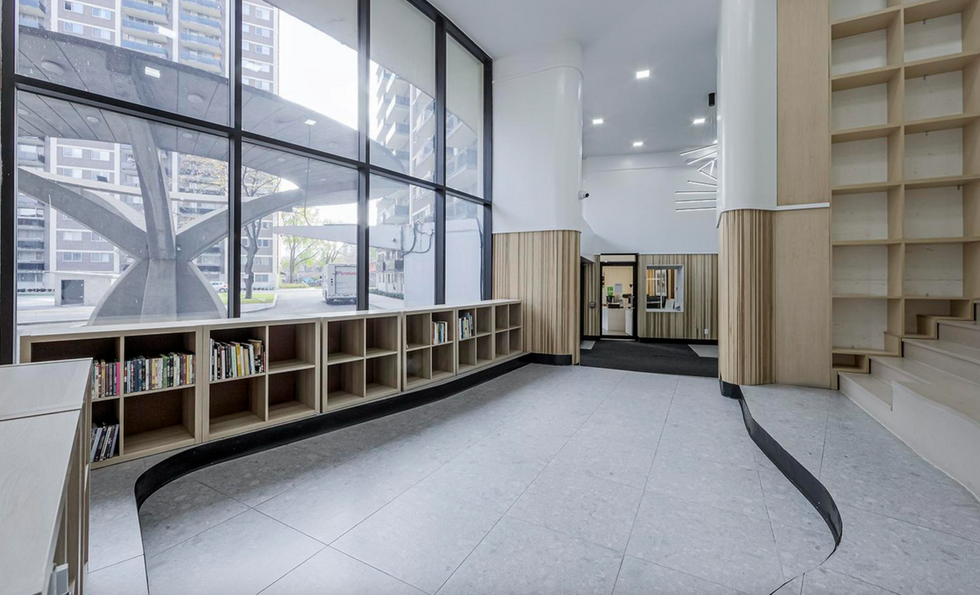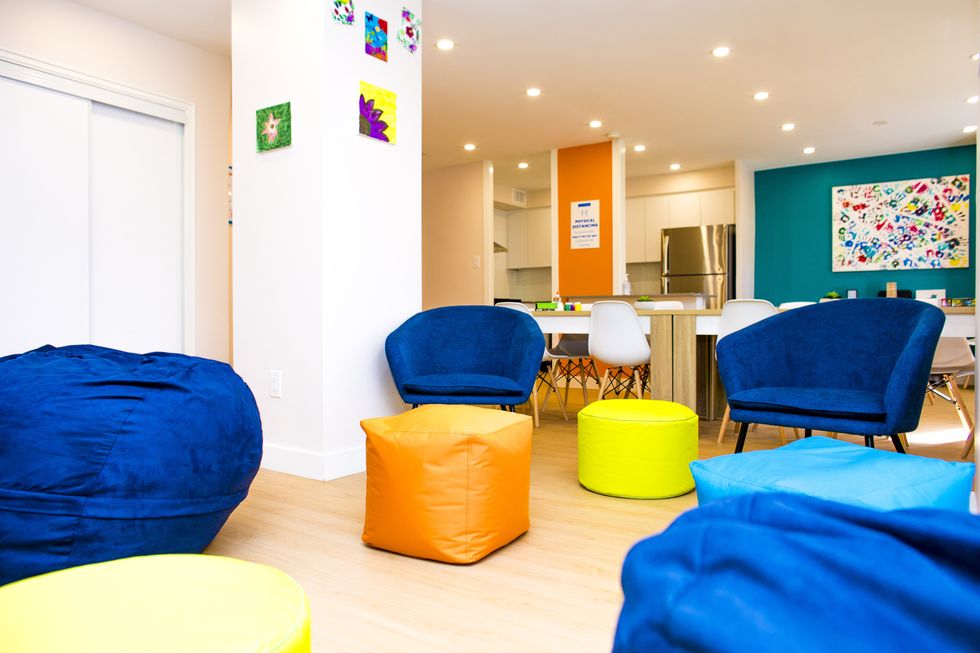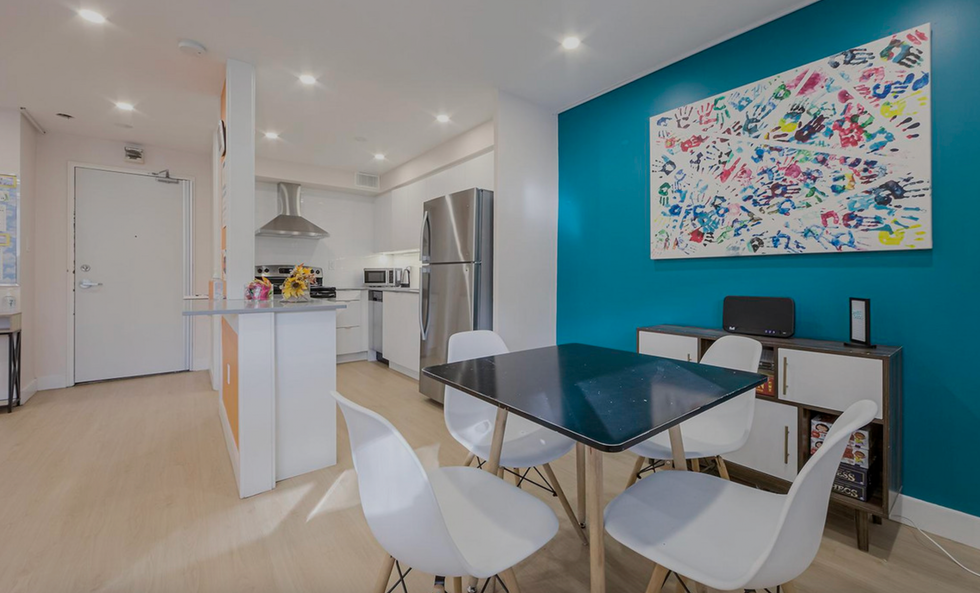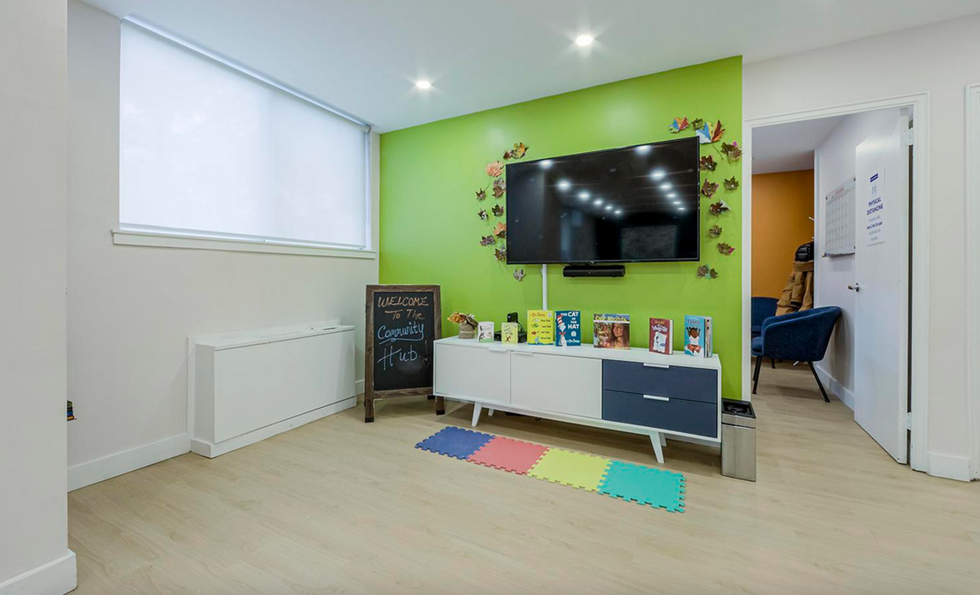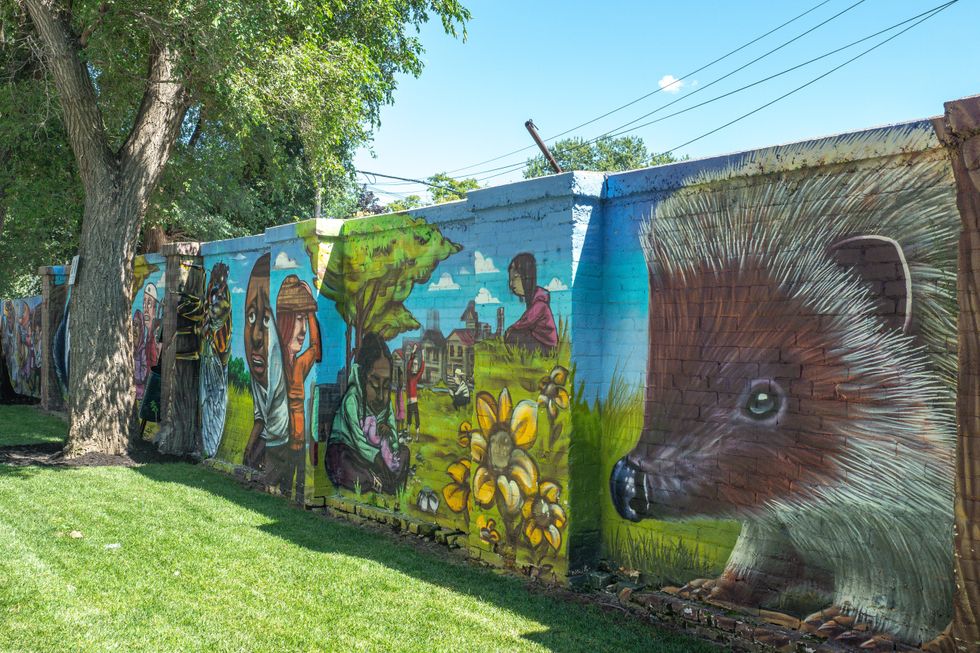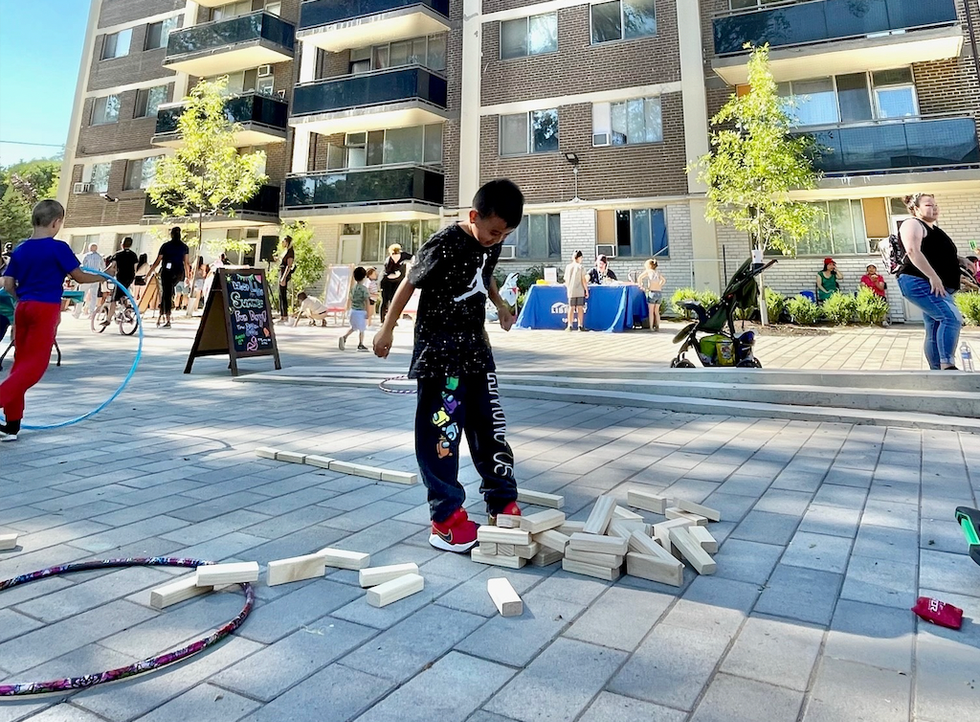The 180-degree revitalization of one of Toronto's most notorious apartment complexes is the focus of a short film that recently premiered at the Toronto Black Film Festival, Halifax Black Film Festival, and Ottawa Film Festival.
In her eight-minute documentary, West Lodge Redemption, award-winning Toronto filmmaker Tasha Gray tells the story of the West Lodge Apartments — once dubbed 'Worst Lodge' — where she lives as a resident and where tenants once fought back against some of the worst living conditions in the city.
The two-tower, 720-unit Parkdale apartment complex was built in 1964, and over its lifetime, gained a seedy reputation for its general state of disrepair, numerous Building Code violations, and unsavoury activity.
Anna Thacker, a tenant of West Lodge since the 1980s, shares in the documentary that theft and prostitution were common occurrences. Another resident since 2009, Frank Clark, said the landlord would often ignore work orders. Mice, cockroaches, crime, and persistent maintenance problems were common shortcomings highlighted by residents in the documentary.
Gray herself is intimately familiar with the less-than-ideal living conditions that once made West Lodge infamous.

"I remember days where I had to carry groceries up 12 floors because the elevators were down again," Gray tells STOREYS. "There were infestations. Unreliable heating during the winter made it feel like we were being punished just for living here. It wore me down, mentally and emotionally."
In the '90s, tenants became fed up with their landlord's neglect and formed a tenants' association, to which Thacker was elected president. This tenants' association would go on to make headlines for a rent strike and for their fight to buy West Lodge from the City of Toronto.
The tenants were ultimately outbid by previous owners, Phil Wynn and his sons Paul and Jeffery, who had been largely responsible for allowing the complex to fall into disrepair, but after a string of neglectful owners, the property was purchased by Hazelview Properties in 2018 with the goal of bringing West Lodge back to life.
"What we do is look for real estate properties that have potential for transformation and for us to add value. [...] Parkdale is a really vibrant, historic neighbourhood, it's got excellent access to transit, so from a location perspective we were really attracted by that possibility," Managing Partner, Head of Sustainability & Brand at Hazelview Colleen Krempulec tells STOREYS. "But when we purchased [West Lodge] it had been neglected for years by prior landlords, and we saw that as an opportunity to address some critical needs in Toronto's housing market."
At the time that Hazelview acquired West Lodge, there was a backlog of over 14,000 work orders and the building required significant renovations from redoing amenity spaces to upgrading the fire and life safety systems and the plumbing risers (a $23 million investment) to re-landscaping exterior spaces.
On top of physical repairs, Hazelview had the task of repairing the relationship with tenants who had been long neglected by previous landlords.
"We were walking into a community that had built up a lack of trust in their in their landlord, and so we had to re-earn that trust," says Krempulec. "In the first year, we went door to door and attempted to speak to every single resident. Before we really started investing in changes, we asked them; 'What are your needs? What are your wants? What's not working?'"

What they heard was threefold: residents wanted increased physical and emotional safety, community space for youth, and an investment in community wellbeing.
In response, Hazelview got to work implementing things like CPTED (Crime Prevention Through Environmental Design), alongside lighting and fire safety upgrades. To address the desire for youth and community spaces, two apartments were joined to create a ground floor community hub that offers complimentary after school programs, arts and crafts, and cooking, ESL, and homework classes, alongside things like lobby libraries, outdoor play structures, and a splash pad.
To address the need for investment in community wellbeing, Hazelview also offers complimentary private healthcare to residents, including mental health practitioners — a perk even Toronto's most luxurious condo buildings lack — and the building even contains a food bank for residents facing food insecurity.
After years of transformation, a place that once played host to crime and mice is now home to Friday movie nights in the amenity room and community gardens cultivated by residents.
"I think Hazelview believes, like me, that buildings are more than walls. Since Hazelview took over, there have been visible improvements — like upgraded elevators, better lighting, community spaces and some much-needed repairs. It has also created a sense of community at West Lodge, with indoor lobby libraries, play spaces for children, and a community garden," says Gray. "Since these improvements, there's been a shift in atmosphere. A lot of residents feel hopeful. Of course, there will always be people who are wary, but Hazelview has continued to stay consistent and build trust."
Thacker, who has been a West Lodge tenant for over 40 years, describes the transformation as "night and day" in the documentary.
In the years to come, Krempulec says Hazelview will continue to engage with the West Lodge community. "We are constantly surveying our residents, asking them, what's working, what's not, and tailoring programming and services based on what we hear," she says.
For Gray, it was important that the story of West Lodge be told. "I want viewers to see the humanity behind the statistics and recognize that poor living conditions are not a result of tenant failure, but systemic neglect," she says.
West Lodge Redemption, Gray explains, serves as a way to pay homage, not only to her community's struggles, but also their steadfast resilience in the face of rampant neglect.
"People would talk about West Lodge like it was just another 'problem building,' but no one ever talked about the people — about the families, the elders, the newcomers, and the generations that have fought to make it livable," she says. "As a filmmaker and a tenant, I wanted to reclaim that narrative. I wanted to tell our story from the inside, with truth and dignity. We’ve endured a lot here, but we’ve also built a strong, resourceful community. That deserves to be documented, not erased. I wanted to celebrate the people who call West Lodge home."
